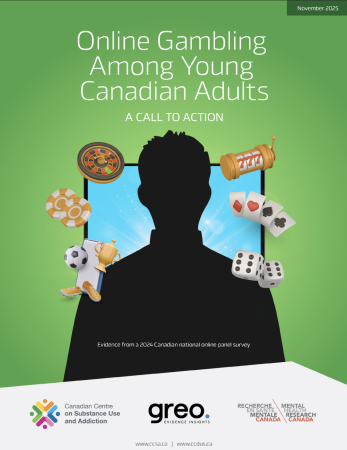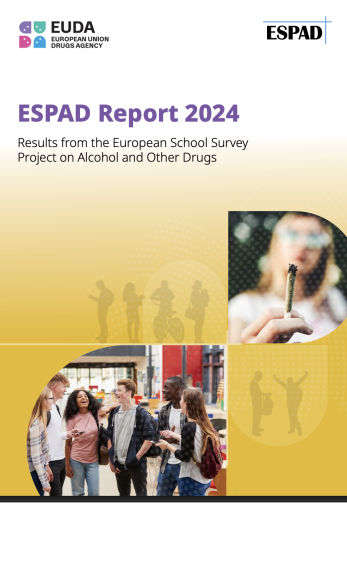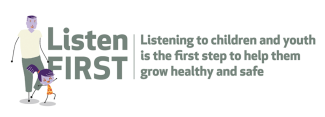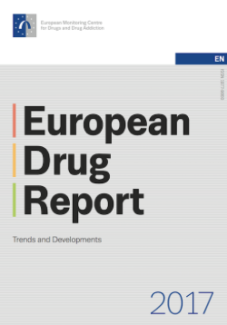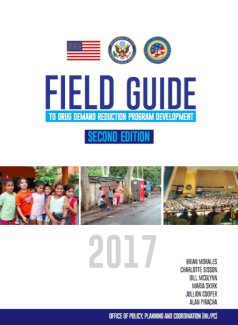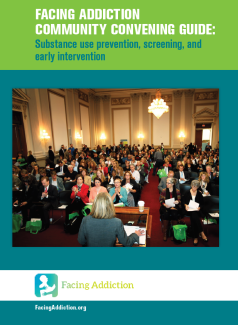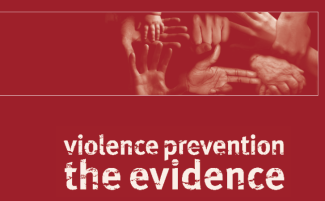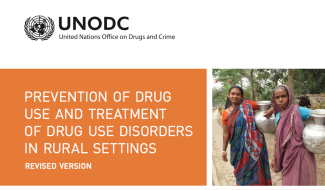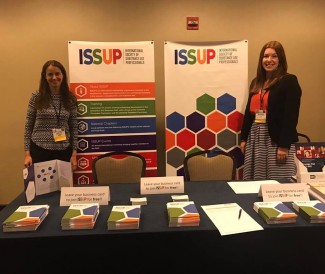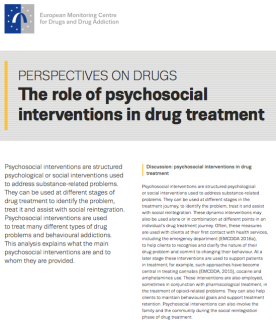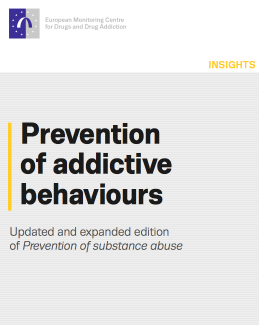
Hledat
Fact Sheet: International Day Against Drug Abuse and Illicit Trafficking
Introduced by the United Nations General Assembly Resolution 42/112 of December 1987 and observed annually since 1988, today marks the 29th International Day Against Drug Abuse and Illicit Trafficking.
What is it?
- The International...
European Drug Report 2017
The European Monitoring Centre for Drugs and Drug Addiction (EMCDDA) has recently released its European Drug Report for 2017. The document offers an overview of the drug situation across the continent. It covers drug supply and use as well...
Field Guide to Drug Demand Reduction Program Development, 2nd ed.
The Field Guide to Drug Demand Reduction (DDR) Development is an annual publication by the U.S. Department of State primarily for its Embassy personnel abroad to guide in the development of substance use prevention and treatment programming...
Community Convening Guide: Substance Use Prevention, Screening, and Early Intervention
A key objective of Facing Addiction’s Action Agenda is to spread the awareness and adoption of youth prevention activities in your communities, examples of which include evidence-based prevention programming highlighted in the 2016 U.S...
Personality-Targeted Substance Use Interventions: Do They Work?
Do high-risk pupils benefit more so from psychological interventions than standard drug education initiatives?
Much research suggests there are, in fact, a number of significantly positive effects associated with the former.
What is more...
Preventing Violence Through Alcohol Consumption Reduction Measures
The World Health Organization has released a series of briefings on violence prevention. Of particular interest is Chapter 3: Preventing Violence by Reducing Availability and Harmful Use of Alcohol.
‘Harmful use of alcohol is a major...
Prevention and Treatment for Drug Use in Rural Settings
The United Nations Office on Drugs and Crime (UNODC) has recently published what the organisation describes as ‘an awareness-raising tool’ aimed at policy-makers, public health officials, local authorities and other stakeholders.
Its...
How to Implement Effective School-Based Drug Education
Technická konzultace k aktualizaci standardů prevence
Gilberto Gerra, vedoucí oddělení protidrogové prevence a zdraví Úřadu OSN pro drogy a kriminalitu (UNODC), zahajuje setkání na téma "Technická konzultace o aktualizaci standardů prevence" v ústředí UNODC ve Vídni.
Jeff Lee, výkonný ředitel...
ISSUP at the Society for Prevention Research Annual Meeting
Last week Joanna Travis-Roberts, ISSUP's Deputy Executive Director, and Livia Edegger, ISSUP’s Communications and Research Manager, attended the Annual Meeting of the Society for Prevention Research (SPR) in Washington, D.C. Prior to the...
Jak se vypořádáme s opiátovou epidemií?
Nadměrné předepisování opiátů je ve Spojených státech významným problémem veřejného zdraví. Například opiáty jsou často předepisovány zbytečně na drobná zranění. To zase zvyšuje riziko závislosti.
Nový výzkum prezentovaný na výroční...
Parental Absence in Early Childhood and Onset of Smoking and Alcohol Consumption before Adolescence
Abstract
Background: Parental absence, due to death or separation from a parent, has been associated with smoking and alcohol consumption in adolescence and adulthood. The aim of this study was to investigate whether parental absence in...
Estimating the Cost-Effectiveness of Brief Interventions for Heavy Drinking in Primary Health Care across Europe
Background
Screening and brief interventions for alcohol are an effective public health measure to tackle alcohol-related harm, however relatively few countries across the European Union (EU) have implemented them widely. This may be due...
Gender-Specific Predictors of At-Risk Adolescents’ Hazardous Alcohol Use
Abstract
Background
Previous research has found strong associations between adolescents’ hazardous alcohol use and their perception of peer behavior, as well as own spending money and a range of antisocial behaviors. However, there is...
State HCV Incidence and Policies Related to HCV Preventive and Treatment Services for Persons Who Inject Drugs — United States, 2015–2016
Summary
What is already known about this topic?
The United States has experienced a sharp increase in hepatitis C virus (HCV) incidence that can be attributed to injection drug use. Some states have used public health laws and treatment...
Current and Binge Drinking Among High School Students — United States, 1991–2015
Summary
What is already known about this topic?
Each year from 2006 to 2010, excessive alcohol consumption was responsible for approximately 4,300 deaths among persons aged <21 years, and, in 2010, underage drinking cost the United States...
Does Plain Packaging Cause a Reduction in the Prevalence of Smoking?
Tobacco is the number one cause of preventable death worldwide. A recently published Cochraine Review has found that standardised, or plain, tobacco packaging could make tobacco products less appealing and, in turn, lead to a reduction in...
Vyšší daně potřebné ke snížení míry kouření v jižní Asii
Nový výzkum publikovaný v časopise The British Medical Journal podporuje potřebu zvýšit daně z tabákových výrobků v jižní Asii a naznačuje, že by to mohlo snížit spotřebu nejméně o 1/3 a následně zabránit přibližně 35 až 45 milionům...
Co je třeba vědět o psychosociálních intervencích v léčbě drogové závislosti?
Psychosociální intervence jsou psychologické nebo sociální intervence používané k řešení problémů souvisejících se zneužíváním návykových látek a závislostí na chování. Mohou být použity k identifikaci a léčbě problémů, jakož i k pomoci s...
Nová publikace: Prevence návykového chování EMCDDA
Aktualizovaná verze publikace Evropského monitorovacího centra pro drogy a drogovou závislost (EMCDDA) Prevence zneužívání návykových látek je nyní k dispozici v angličtině. Svým rozsahem poskytuje aktuální přehled vědeckých poznatků o...
Share the Knowledge: ISSUP members can post in the Knowledge Share – Sign in or become a member
